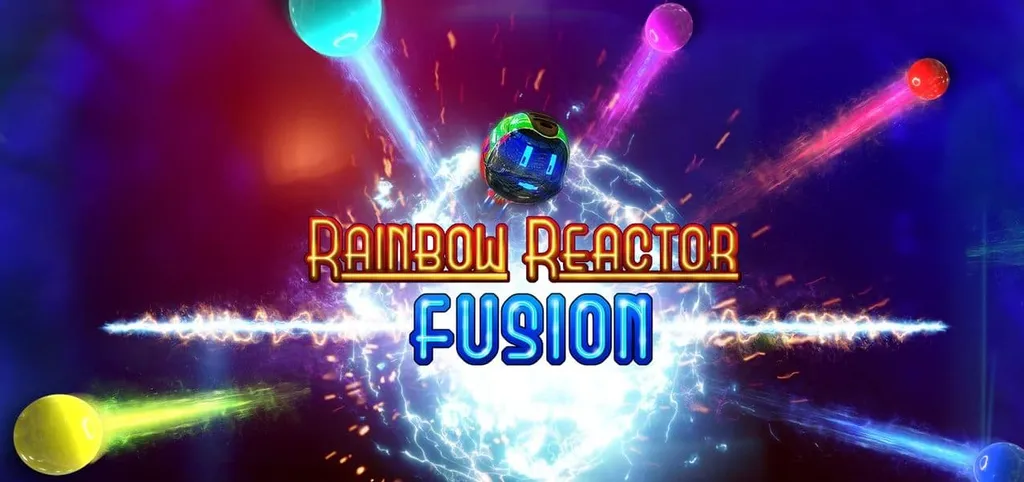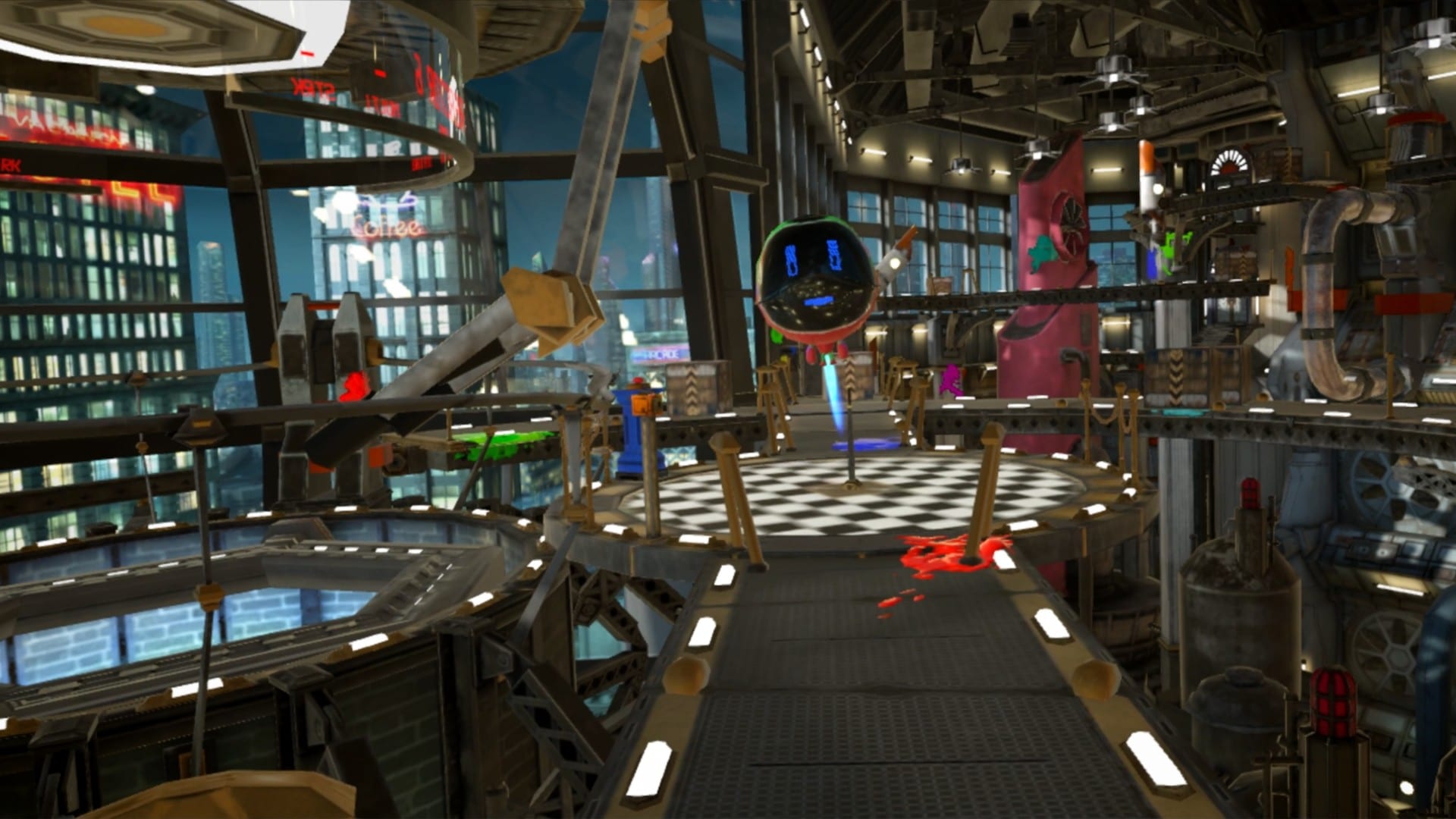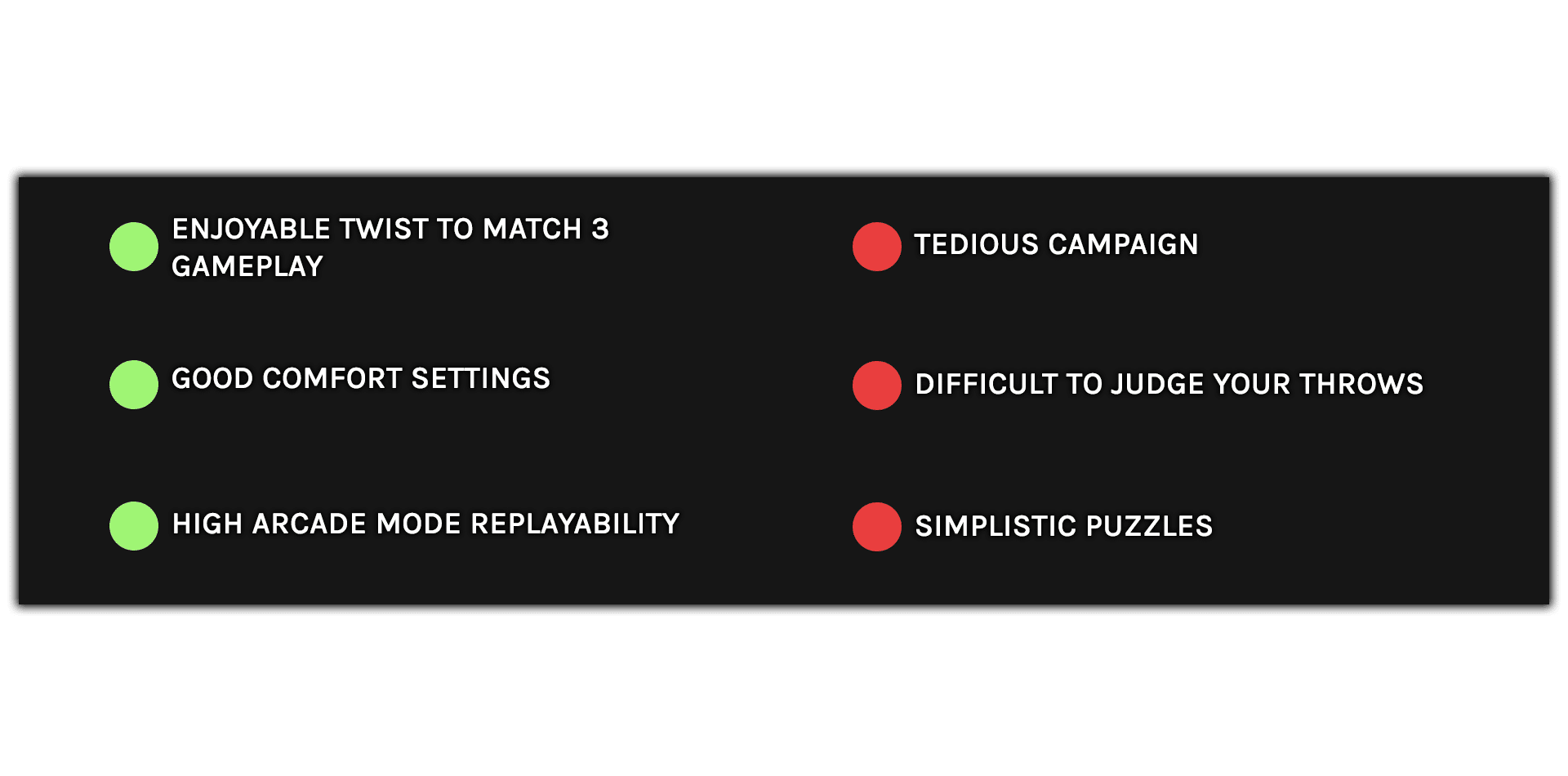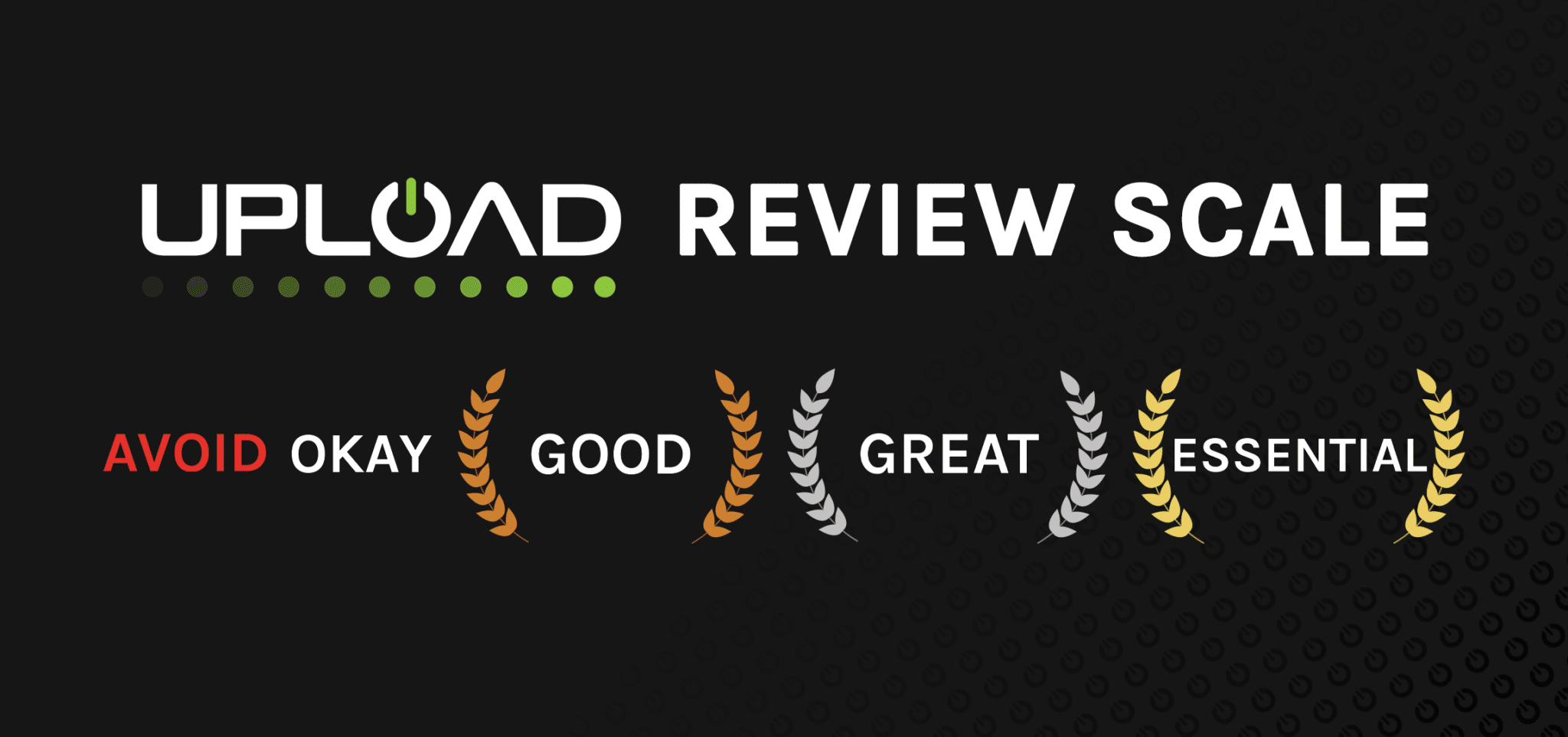Match 3 puzzlers might be one of gaming’s oldest genres, but Rainbow Reactor: Fusion is applying a fresh coat of paint. Read on for our Rainbow Reactor: Fusion review!
Whether you grew up on Puzzle Bobble, plugged hours into Bejeweled or adventured across Puzzle Quest, we’ve all encountered tile-matching at some stage. You’ve never lacked choice for Match 3 games and now VR’s getting a turn with developer Tunermaxx’s Rainbow Reactor: Fusion. Expanding upon 2019’s Rainbow Reactor, Fusion retains that core gameplay whilst adding a single-player campaign. It’s an interesting twist to this old palette, though the canvas has several blemishes.
[vc_row][vc_column][vc_cta h2=””]Rainbow Reactor: Fusion Review – The Facts
What is it?: Tile-matching mania… in VR!
Platforms: Quest (PC VR coming soon)
Release Date: Out now
Price: $14.99[/vc_cta][/vc_column][/vc_row][vc_row][vc_column][vc_column_text]
Fusion sees our protagonist summoned to Rain City’s Rainbow Reactor, responsible for providing the local district’s power. With your eccentric relative Alfred Luzian von Hoffenhasselbrock nowhere to be found, he leaves a video asking for your help to bring the Rainbow Reactor out of disrepair. You’re accompanied by Dottie, a robot companion with unfiltered disdain for humanity after the factory’s downfall, who acts as your rather blunt guide.
Traveling between several factory floors, our goal is to reactivate these dormant reactors, exploring this facility with free movement. Between smashing your way through boxes, finding old fuses lying about and cleaning up paint spills with a brush, maintenance goes beyond simply flipping power switches and matching colors. Armed with a toolset for clearing new sectors, some are scattered across this factory, while others are obtained from Rainbow Reactor’s gift shop, though I’ll come back to that later.
Unfortunately, Fusion’s star addition is arguably its weakest element, as exploration felt like a slog. Traversing this reactor is fairly slow, lacking any fast travel or sprint options, and factory tasks felt simplistic. When there were repeated gaps between restoring reactors filled by brushing away paint or restoring pressure to paint valves, it felt more like a chore. There’s a nice idea for expanding upon Rainbow Reactor’s premise, but as Fusion lacks any real urgency and thus you need considerable patience.
That said, Fusion finds redemption once you start powering up reactors, which unlocks stages individually in arcade mode upon completion. Using motion controllers to grab paintballs, our goal is to match three of the same colour to create a reaction, throwing them onto a grid. Each reactor has set reaction quotas to clear it, building up a score multiplier, and if you four to five balls at once, that earns a higher score. If you miss a shot, you’ll be awarded a strike. Run out of strikes? Time to start over.
As you progress, Fusion starts throwing randomized paintballs into the grid of its own accord, and you’ve got no choice on the chosen color, so you’ve got to be quick. Initially, your color palette is limited to cyan, yellow and magenta, but upon advancing, you can mix colors by pushing two paintballs together, much like real life. For example, mixing cyan/yellow paintballs lets players create green, or magenta/yellow for red.
It’s a creative way to mix up this formula and landing stronger reactions was entertaining, but judging your throw isn’t always easy. Because you can’t feel the weight of your object, calculating a shot’s power can be tricky and unlike Disc Ninja – a game where you throw frisbees – you can’t lock-in shots to a specific direction. It’s not all bad though, as Rainbow Reactor’s gift shop features gameplay modifiers to assist you, like extra strikes, or catchers to stop paint balls falling onto the floor.
If quotas prove tricky/easy to reach, players can adjust them by 50% through easy and hard difficulties, depending on the challenge you’re seeking. Once that quota’s finally been hit, Fusion scores your efforts, deducting points if there are many paintballs left but awarding a bonus for having multiple strikes left over. Similarly, leaving less than 6 paintballs on the grid adds further bonus points. Adding online leaderboards too for each reactor, Fusion holds decent replayability for high score chasers.
[vc_row][vc_column][vc_cta h2=””]Rainbow Reactor: Fusion Review – Comfort
Rainbow Reactor: Fusion offers two forms of movement, smooth stick locomotion and teleportation. There’s a snap turning camera which allows you to adjust the rotation angle, a seated mode for extra comfort, alongside left and right-handed controllers preferences.
Initially, I felt slightly nauseous wondering around with locomotion turned on, though teleportation helped alleviate that. Thankfully, for a game based around colors, Tunermaxx has also included a Colorblind mode (Note for you Jamie: This is how its spelt in the game, not with British English) for increased accessibility.[/vc_cta][/vc_column][/vc_row][vc_row][vc_column][vc_column_text]
Beyond the campaign, Rainbow Reactor: Fusion offers several different modes with decent variety. Inside Arcade Mode, players can pick a survival option, challenging you to nine rounds of non-stop color-matching. Single shift mode lets us pick individual reactors to replay, while party mode is designed for local play, swapping turns on your headset between friends to see who can get the best scores.
Rainbow Reactor: Fusion Review – Final Impressions
There’s plenty to like about Rainbow Reactor: Fusion but sadly, Tunermaxx’s biggest new addition marks Fusion’s weakest element. I respect their efforts to expand upon the original game’s premise, but when problem-solving feels like a chore and exploration proves tedious, it weighs down the wider experience. Despite this, the core gameplay proved entertaining and if you’re a fan of Match 3 puzzles, Fusion could be worth a look.
For more on how we arrived at this rating, read our review guidelines. What did you make of our Rainbow Reactor Fusion review? Let us know in the comments below!






























